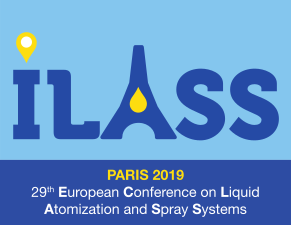Nanofuels, which are colloidal suspensions of nanosized particles in a base fuel, have been considered in propulsion and combustion applications. This is because they have the potential to reduce emissions when used as fuel in internal combustion engines. In the work presented here, experiments were carried out with millimetre sized nanofuel droplets to ascertain the evaporation rates at room temperature. The nanofuels consisted of pendant droplets of ethanol base fuel laden with 0 – 0.5 % by weight cerium oxide nanoparticles. The droplet evaporation images were acquired with a high speed camera and the images reduced to acquire the droplet evaporation data for the nanofuel droplets. The results indicated that the evaporation rates for the ethanol base fuel followed the D2 law, and that there was a deviation from the law as the nanoparticle concentration in the base fuel was increased. The evaporation rate of the base ethanol fuel was also found to be between about 6 and 11% higher than those of the nanoparticle laden fuels. This is similar to previous studies using cerium nanoparticles in diesel and also to observations made from ethanol fuel droplets laden with aluminium nanoparticles. The addition of nanoparticles increases the apparent heat of evaporation, therefore, reducing the evaporation rate.
|
|
|
|
On the evaporation of nanofuel droplets
1 : Faculty of Engineering, Environment and Computing
Coventry University, Priory Street, Coventry, CV1 5FB -
United Kingdom
2 : Indian Institute of Science
* : Corresponding author
Interdisciplinary Center for Energy Research, Bangalore - 560012 -
India
|
| Online user: 43 | RSS Feed |

|

 PDF version
PDF version